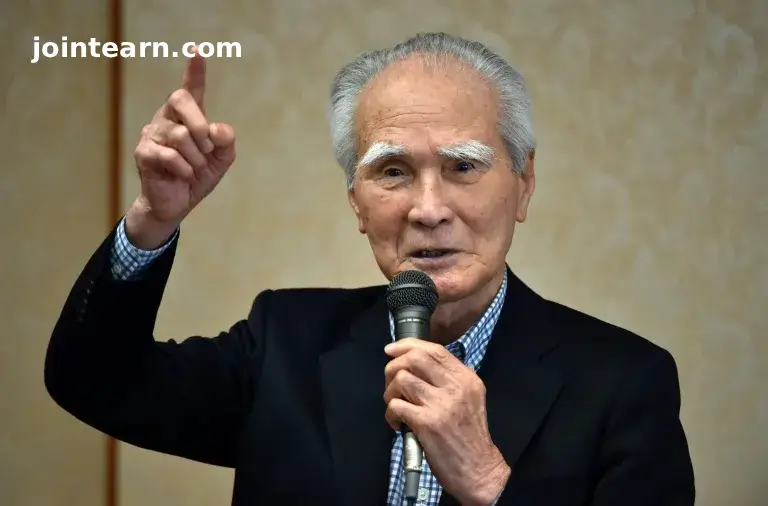
TOKYO, JAPAN — Former Japanese Prime Minister Tomiichi Murayama, who made history with his heartfelt apology for Japan’s wartime aggression and atrocities during World War II, passed away on Friday at the age of 101, officials confirmed.
Murayama, a respected figure in Japanese postwar politics, was best known for his 1995 “Murayama Statement”, issued on the 50th anniversary of Japan’s surrender, in which he expressed “deep remorse” and “heartfelt apology” for Japan’s colonial rule and wartime actions across Asia.
The declaration marked a historic turning point in Japan’s reckoning with its past and became a diplomatic benchmark for all subsequent prime ministerial statements on wartime responsibility.
Death Confirmed by Social Democratic Party
Mizuho Fukushima, head of Japan’s Social Democratic Party (SDP) — the successor to Murayama’s now-defunct Japan Socialist Party — confirmed the former leader’s passing on X (formerly Twitter), saying:
“Tomiichi Murayama, the father of Japanese politics, passed away today at 11:28 a.m. at a hospital in Oita City at the age of 101.”
Hiroyuki Takano, secretary general of the SDP’s Oita branch and a close associate of Murayama, told AFP that the cause of death was old age.
Murayama, who was born in 1924 in Oita Prefecture, southwestern Japan, was one of the few surviving wartime leaders who had personally experienced the final stages of World War II.
The Landmark “Murayama Statement”
In August 1995, on the 50th anniversary of Japan’s defeat in World War II, Murayama delivered a statement that changed Japan’s diplomatic tone for generations.
He declared:
“Japan, through its colonial rule and aggression, caused tremendous damage and suffering to the people of many countries, particularly to those of Asian nations.
In the hope that no such mistake be made in the future, I regard, in a spirit of humility, these irrefutable facts of history, and express here once again my feelings of deep remorse and state my heartfelt apology.”
The phrases “deep remorse” and “heartfelt apology” became enduring elements of Japan’s official wartime discourse, echoed by subsequent leaders such as Junichiro Koizumi, Shinzo Abe, and Fumio Kishida in their anniversary speeches.
The “Murayama Statement” helped Japan mend ties with countries like South Korea, China, and the Philippines, which had suffered under Japanese occupation and aggression during the early to mid-20th century.
A Coalition Leader in a Turbulent Time
Murayama served as Japan’s Prime Minister from 1994 to 1996, leading an unusual coalition government that included his Socialist Party and the conservative Liberal Democratic Party (LDP) — Japan’s dominant political force for most of the postwar era.
Despite their ideological differences, Murayama’s coalition managed to hold together during one of Japan’s most turbulent periods, marked by both natural disasters and domestic terrorism.
His tenure saw two major national crises:
- The 1995 Great Hanshin Earthquake in Kobe, which killed over 6,400 people.
- The Tokyo subway sarin gas attack by the Aum Shinrikyo cult, which left 13 people dead and thousands injured.
While his government faced criticism for its response to both tragedies, Murayama was widely respected for his humility, composure, and dedication to national unity.
From Wartime Soldier to Peacetime Statesman
Born on March 3, 1924, Murayama grew up during Japan’s militarist era. In 1944, while studying at Meiji University, he was conscripted into the Imperial Japanese Army.
In a 2015 interview with Japan’s public broadcaster NHK, Murayama described his experience in the military as a “dreadful thing,” recalling a culture of blind obedience:
“Rebellion or argument was absolutely forbidden. We had weapons made of bamboo. I wondered if we could wage war in this condition.”
These experiences shaped Murayama’s lifelong advocacy for pacifism and social justice, aligning with Japan’s postwar Constitution, which renounces war as a means of settling international disputes.
Legacy of Reconciliation and Pacifism
Murayama’s influence extended far beyond his two-year term as prime minister. His 1995 apology became the moral cornerstone of Japan’s diplomatic engagement with Asia and set a precedent for future administrations to confront historical issues openly.
Even decades later, the “Murayama Statement” remains a central reference in debates over Japan’s wartime memory — especially amid regional tensions with China and South Korea regarding territorial and historical disputes.
Historians credit Murayama for articulating a vision of national responsibility without self-denial, helping Japan transition from postwar isolation to a responsible international actor.
“Murayama’s words reflected courage — the courage to acknowledge the past and to build a future based on truth and peace,” said political analyst Hiroshi Suzuki of Tokyo University.
Personal Traits and Later Life
Known for his distinctive bushy eyebrows and warm personality, Murayama remained a beloved public figure in Japan’s political and academic circles.
Even after retirement, he continued to give lectures advocating human rights, social welfare, and peace education.
In his later years, he lived quietly in Oita Prefecture, occasionally attending political events or granting interviews reflecting on postwar Japan’s path toward reconciliation.
A Life Spanning a Century of Change
Tomiichi Murayama’s life spanned a century that saw Japan’s transformation from a wartime empire to a global economic and democratic power.
From a conscripted soldier to a prime minister of conscience, his journey embodied the contradictions and aspirations of modern Japan.
As the nation mourns one of its most reflective leaders, the “Murayama Statement” endures — a reminder that remorse, humility, and historical accountability remain at the heart of Japan’s postwar identity.


Leave a Reply